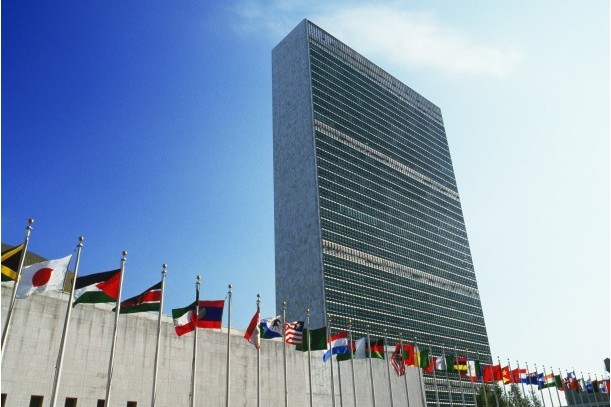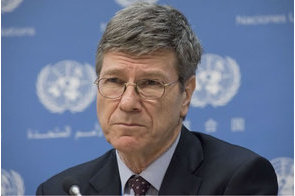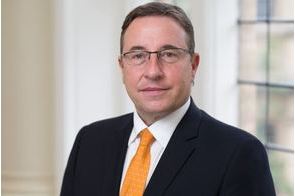Access Bank at the front lines of SDG actions

Summary
This year marks the beginning of a decade in which action needs to be accelerated by key stakeholders to achieve SDGs.
When the United Nations said 2020 would usher in a "decade of action," the organisation was not just introducing a fanciful catchphrase for the international community. This year, which is almost coming to an end, marks the beginning of a decade in which action needs to be accelerated by key stakeholder groups to achieve the Sustainable Development Goals (SDGs) by 2030.
The 17 SDGs, also known as the 2030 Agenda for Sustainable Development, aim to address the world’s biggest challenges, including poverty, hunger, gender and education inequality, and climate change. These are ambitious goals that require unprecedented global cooperation and financing to deliver.
In a recent interview on CNBC Africa’s “Closing Bell” programme, Head of Sustainability at Access Bank Plc, Omobolanle Victor-Laniyan, discussed the key role of the private sector in implementing the SDGs. According to the UN Conference on Trade and Development (UNCTAD), developing countries alone face an annual funding gap of $2.5 trillion to achieve the SDGs. Ms. Victor-Laniyan underscored the point that the public sector alone cannot mobilise the required financing for the SDGs and climate action.
This means the private sector has an integral role to play by collaborating with the public sector both as a key stakeholder group for sustainable development and in plugging the financing gap. The 2030 Agenda provides investment opportunities for businesses as well as a platform for channelling the innovation capacity of the corporate sector even as Access Bank has consistently demonstrated.
"Challenges require solutions, and as the private sector, we could provide those solutions," Victor-Laniyan said during the interview on CNBC Africa. "The private sector can proffer these solutions by innovating appropriately across various SDG areas, such as building sustainable cities, climate-smart agriculture, clean energy, improved healthcare and so on. All of these require not only the dynamism but also the funding of the private sector, working in very close partnership with governments and communities."
For over a decade, Access Bank has been investing and attracting investments and partnerships for the achievement of sustainable development. The bank has been committed to delivering sustainable economic growth that is environmentally-responsible and socially-inclusive. The largest retail bank in Africa by customer base is known for providing innovative solutions for its customers and supporting communities where it operates.
One of the areas the bank has helped in scaling up investment in climate action and sustainable development has been through its N15 billion green bond. The bond issuance has provided environmentally-friendly investors an opportunity to meet their investment objectives whilst simultaneously investing in a low-carbon future.
Access Bank is playing a key role in advancing sustainable business practices in Nigeria and Africa through its sustainability strategy. A key aspect of the Bank's strategy is leveraging local and international partnerships to promote sustainability in the Nigerian and global financial sector. One of such important partnerships is through its membership of the United Nations Global Compact (UNGC).
As the world’s largest corporate sustainability initiative, the UNGC provides a platform for businesses to contribute to implementing the SDGs and climate action. With over 13,800 corporate participants and stakeholders in over 170 countries, the UNGC is helping to mainstream corporate sustainability and uniting business for a better world.
In its capacity as Head of the UNGC Local Network Board Committee on Environment, Access Bank participated last month during the virtual three-day Uniting Business LIVE special event organised by the global network to mark the 75th session of the UN General Assembly (UNGA 75). The event – which held on September 21-23 – took stock of the state of the world, addressed gaps in progress on SDGs and highlighted actionable solutions. The UNGC also used the event to commemorate its 20th anniversary.
Access Bank was invited as a panelist on the Global Impact Forum, one of the three sessions organised as part of the Uniting Business LIVE event. The session, themed “Principles-based Environmental Innovations: Practical Decision Making for Climate Action,” explored how both the public and private sectors can promote multilateralism and precautionary approaches to limit environmental degradation through innovative practices.
The Global Impact Forum showcased four key initiatives to mobilise corporate action on the 2030 Agenda: SDG Ambition, Target Gender Equality, Young SDG Innovators, and Business Ambition for 1.5°C. The forum also focused on implementing these initiatives at regional, national and organisational levels, driving impact and scaling up solutions.
Representing Access Bank during the session was Ms. Victor-Laniyan who emphasised the bank’s efforts as it continues to reduce its carbon footprint from its operations. She also discussed other initiatives of the bank, which are helping to facilitate the growth of the domestic and regional sustainable finance market and supporting the development of a low carbon economy.
The Head of Sustainability at Access Bank said, “We have developed a customized Sustainable Finance toolkit to screen projects and identify environmental and social consequences. We also have robust environmental and social risk management procedures and standards that guide project financing and constantly adhere to the Equator Principles for enhanced due diligence in the specific sector areas of our investment and commercial banking portfolio.”
Victor-Laniyan said responding to climate change involves an iterative risk management process that includes both adaptation and mitigation. According to her, organisations that integrate SDGs and sustainability into their operations, strategies and goals obtain a social license to operate and leverage opportunities for profitability.
The other sessions during the Uniting Business LIVE event were the Private Sector Forum and the SDG Business Forum. The event was co-organised with the UN Department of Social and Economic Affairs (UN DESA) and the International Chamber of Commerce. Participants in the UNGC are enjoined to demonstrate their commitment on the SDGs by aligning their strategies and operations with certain universal principles that encompass areas such as human rights, labour, environment and anti-corruption.
Related
-
‘My country first’ approach threatening achievement of SDGs - new report
Nigeria ranks 145 globally, out of 157 countries, with 48.6 score. The Sub Saharan African region has 51.4 average score.
-
Doing more and better with less
Perhaps the most important reason why sustainable living is important is to make the world a better place to live for ...
-
Germany’s Achim Steiner appointed as new Administrator of UNDP
President of the UNDP Executive Board welcomed Achim Steiner's appointment on behalf of members of the Board.







